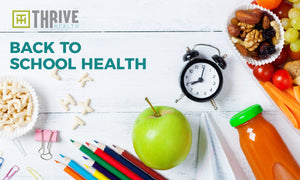It’s that time of year again — school supply shopping, yearly physicals, buying new shoes. As a parent, you either love or dread this season. To make things run a little bit more smoothly this year, get ahead of the “inevitable” fall and winter illnesses by taking these 8 easy steps.
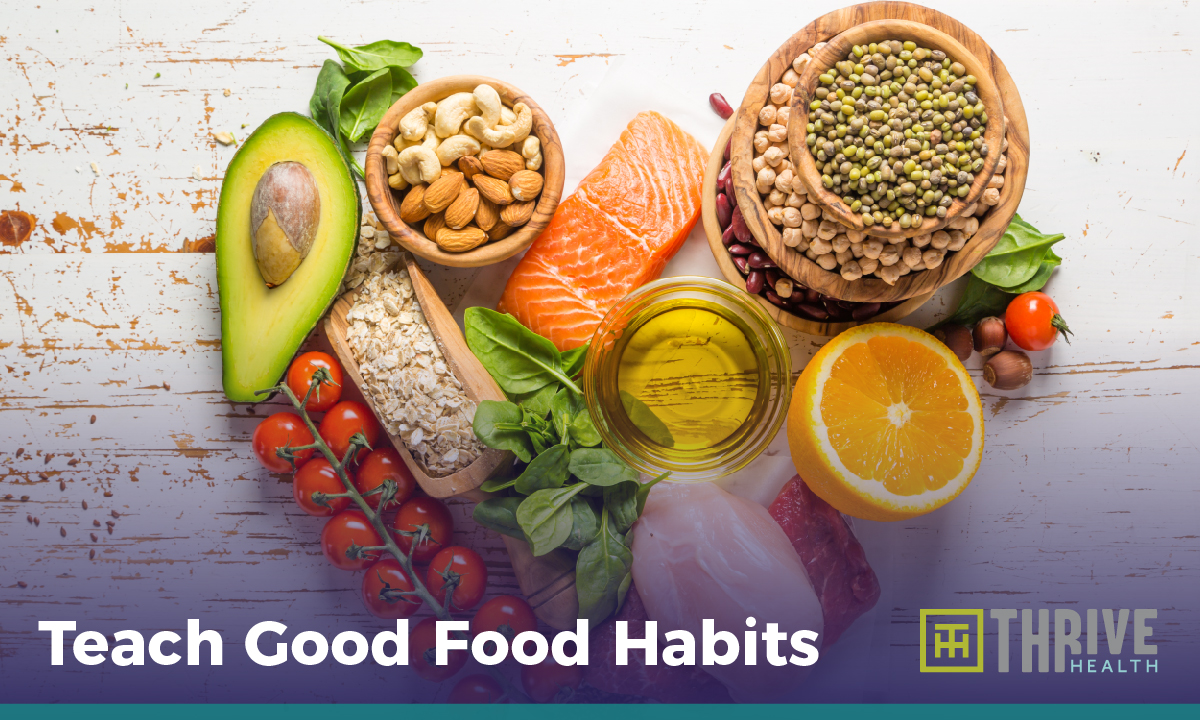
Teaching younger children the importance of healthy eating habits can make a lasting impression on health. Emphasize avoiding processed foods and eating plenty of fruits, veggies, lean protein, and whole grains. Limit sugar, a known immunity suppressant.1 Start the day with a nourishing breakfast, such as eggs, turkey or grass-fed beef breakfast patties along with fresh organic fruit or a veggie-packed omelet. Continue with a balanced lunch and snacks, like a sandwich with lean turkey using ancient grain bread, sprouted crackers with cheese, and fruit. Finish each day with a healthy dinner of fish or other lean protein with plenty of veggies.
Of course, it seems simple on paper, but we know it isn't always easy to get your kids to eat a plate of broccoli, carrots, and kale no matter how nutritious it is. However, it is essential to try to encourage them to eat as wide a variety of vegetables and fruits as possible — they're packed with vitamins, minerals and antioxidants, and early exposure to a broad range of different flavored and textured healthy foods is said to 'train' kids' taste buds, helping them make better food choices later in life.
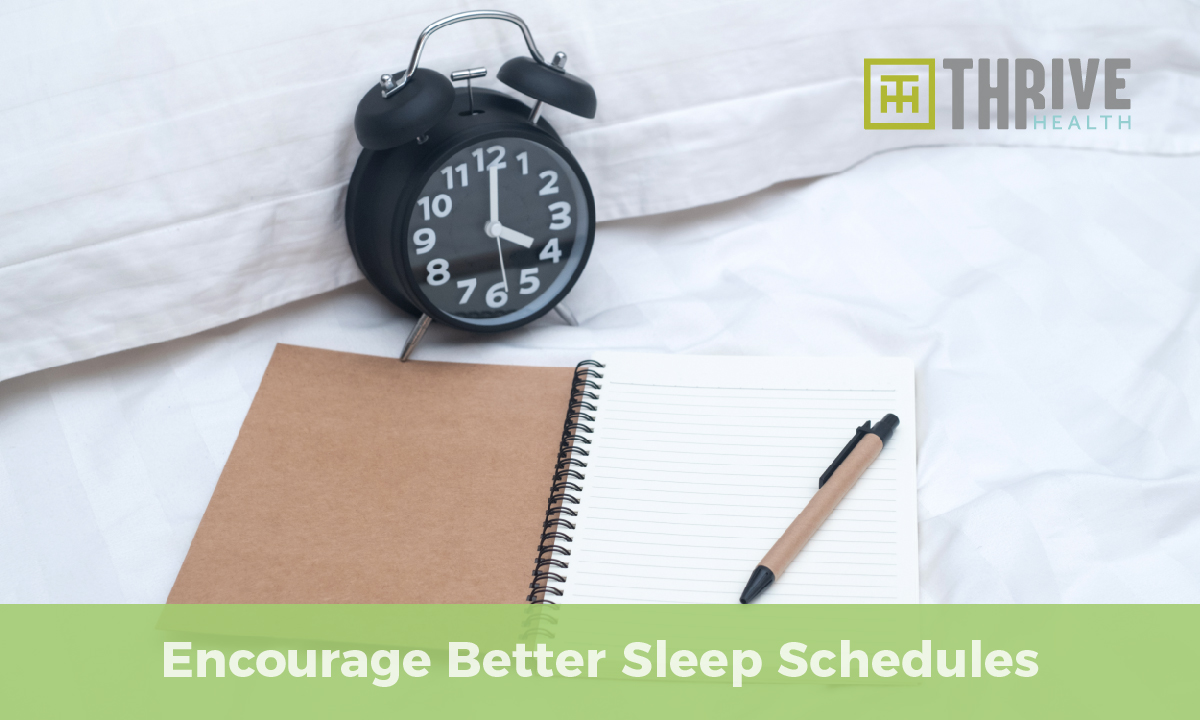
We all know that not getting enough sleep can lead to health issues, such as memory problems and depression, but it can also lead to a weakened immune system. Lack of sleep is correlated with higher levels of cortisol, the body’s stress hormone. Stress is known to suppress the immune system. Studies have shown that less than 5 hours of sleep negatively affects the immune system and that 7 to 9 hours of sleep is ideal for adults, and 9 to 11 hours of sleep is ideal for school-age children.2
The recommended amount of sleep within a 24-hour period (including naptime) is 12-14 hours for toddlers, 11-13 hours for preschoolers, and 10-11 hours for school-aged kids. Most American children are not getting the recommended amount of sleep each day, which can affect their daytime behavior and school performance. If you're having trouble getting your little one to settle in at night, start by cutting out screen time before bed. Employing a regular relaxing bedtime ritual can help your child mentally and physically prepare for sleep. For example, a warm bath followed by a few bedtime stories or soothing music can help a child relax and prepare for sleep. This or another well-selected individual homeopathic remedy can help with restlessness, irritability, nightmares, and anxiety, especially in the first few weeks as you are re-establishing a sleep routine.3

We know EMF's can penetrate the skull, but did you know that children's tissue can absorb up to 10 times the amount of EMF an adult can? Studies have linked EMF exposure to cancer and electromagnetic hypersensitivity, destructive effects on sex hormones, gonadal function, fetal development, and pregnancy, even childhood leukemia, brain tumors, genotoxic effects, neurological effects and neurodegenerative diseases, immune system deregulation, allergic and inflammatory responses, breast cancer, miscarriage, and some cardiovascular effects. Make sure you turn off wifi routers at night.4

Children need vitamin D to build strong bones — but vitamin D also helps bones heal after an injury or surgery. To get enough vitamin D, children often need to take a multivitamin with vitamin D or a vitamin D supplement. Ask your child's health care provider for advice on choosing the right one.
A few guidelines to keep in mind:
- Babies younger than 1 year old need 400 IU of vitamin D a day. Baby formula has 400 IU per liter, so babies who drink at least 32 ounces of formula each day are getting enough. If your baby takes only breast milk or gets less than 32 ounces of formula each day, ask your health care provider about giving your baby a vitamin D supplement.5
- Kids older than 1 year need 600 IU or more of vitamin D a day. Health care providers often want healthy kids to take 600 to 1,000 IU daily.
- Some kids might need more vitamin D, such as those who have certain medical problems (for instance, obesity, celiac disease, cystic fibrosis, multiple fractures, or bone pain), are healing from bone surgery (such as after fusion surgery for scoliosis), or are taking medicines (like anti-seizure medicines) that block the way the body uses vitamin D.
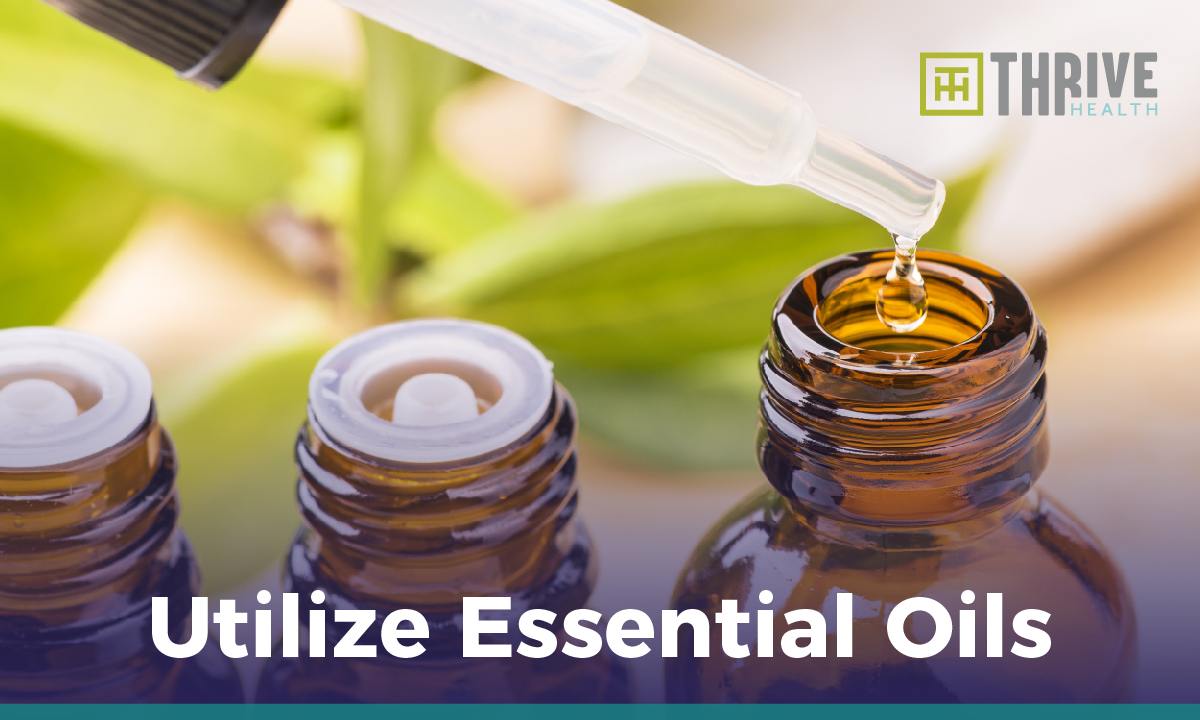
The beginning of the school year can really send kids spinning. New faces, new teachers, new expectations, and typically more homework. It’s a lot to take in. Consider diffusing or making rollers with essential oils that aid in calming and grounding. Lavender and Frankincense are awesome choices. Place a drop of Lavender oil in your child’s hand and have them smell it right before leaving for school to set them on the right track. Alternatively, before socks and shoes go on for the day, take a little Frankincense (mixed with a carrier oil like almond, coconut, or jojoba) and rub it on the soles of their feet. There is a very potent acupuncture point on the bottom of the foot that is highly grounding. Lavender is a great go-to for so many things because it has a harmonizing effect on the nervous system and helps calm the mind. It is the first choice in the treatment of insomnia, especially when it’s due to anxiety or mental stress. Diffuse several drops of high-quality lavender in a diffuser in your child’s room for fifteen minutes before bedtime. Also, you can place a drop mixed with a little carrier oil and rub the bottoms of their feet and their chest.6
Lemon has been referred to as “the oil of focus.” Lemon is a wonderful essential oil for kids who are having trouble in school. It has been said to dispel confusion and to counteract mental fatigue due to too much studying. Diffuse this oil in the room where your child will be studying. Lemon is also a great oil to diffuse in the house to keep germs in the air at bay. Mix lemon essential oil with alcohol and water to make a household spray to use on countertops, door knobs, and the bathroom to keep the house fresh
Remember, a little goes a long way, and all oils should be significantly diluted before going on your child’s skin. Always use a carrier oil and do a test of the essential oil with a carrier oil on a small area before applying freely elsewhere.

Regular, moderate exercise boosts the cells responsible for attacking bacteria. These cells also appear to work faster in those who exercise, which better equips your immune system against viruses and infections. A 30-minute bike ride with your kids is a great activity to improve your immune system. Encouraging outdoor playtime or taking family walks in the evening are great ways to get moving during the school year.
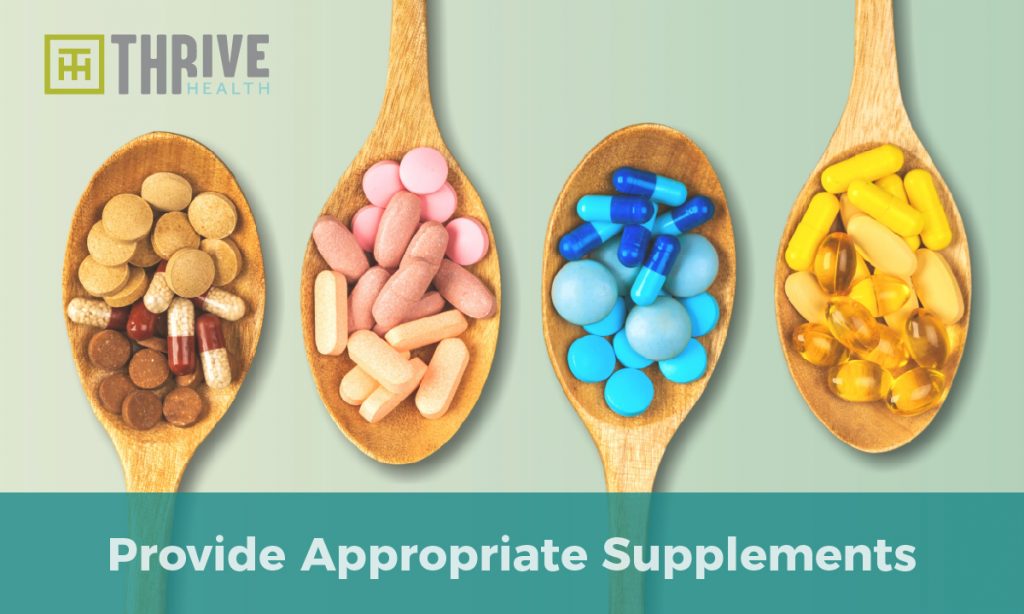
There are a number of supplements available that can help support your child’s immune system.
Multivitamins are a must, not only for the start of cold and flu season, but every day. To support immunity for back to school, add a high-quality probiotic. Adding vitamin C and zinc have also been shown to promote immune health. Be sure to choose supplements and vitamins that are organic, non-GMO and free of fillers and artificial colors to ensure true potency and safety.7

As there is a direct correlation between stress and a weakened immune response, make sure kids have time to play and unwind. Encourage playtime outdoors to fully unplug from technology, as well as creative activities including painting, drawing, or making music. Exercise is also an ideal outlet, strengthening immunity, busting stress and protecting against childhood obesity. Experts even suggest that children try yoga and meditation, which have been found to boost immunity, improve concentration, lower stress, increase confidence and much more.
Sources:
- https://www.huffingtonpost.co.uk/polly-humphris/boost-your-childs-backtos_b_14434438.html
- http://healthysleep.med.harvard.edu/need-sleep/whats-in-it-for-you/health
- https://www.aap.org/en-us/about-the-aap/aap-press-room/Pages/American-Academy-of-Pediatrics-Supports-Childhood-Sleep-Guidelines.aspx
- https://www.science.gov/topicpages/e/electromagnetic+radiation+exposure.html
- https://www.mayoclinic.org/healthy-lifestyle/infant-and-toddler-health/expert-answers/vitamin-d-for-babies/faq-20058161
- https://www.ncbi.nlm.nih.gov/pmc/articles/PMC6007527/
- http://info.achs.edu/blog/dangerous-supplement-ingredients
- http://info.achs.edu/blog/dangerous-supplement-ingredients


